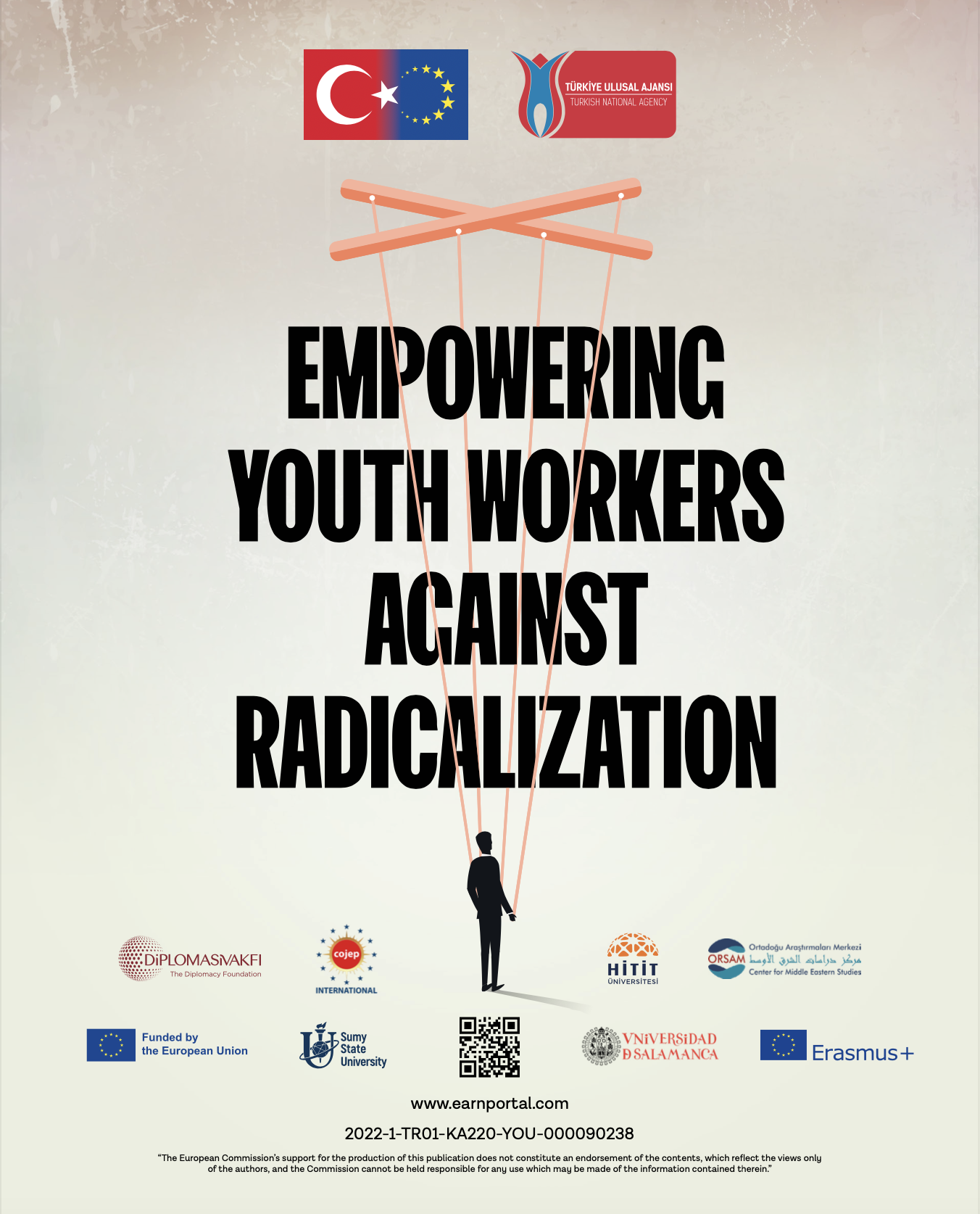About
Rationale of the Project
The Empowering Youth Workers Against Radicalization project seeks to equip youth workers with the necessary knowledge, skills, and competencies to identify and prevent radicalization among young people in their communities. The project focuses on providing youth workers with evidence-based training, tools, and resources to engage with young people at risk of radicalization and promote their integration into society. The project recognizes that radicalization is a complex phenomenon that is influenced by various factors, including socio-economic disparities, cultural and religious beliefs, and political ideologies. Therefore, the project adopts a multidisciplinary approach to address the issue of radicalization by incorporating the perspectives of experts in various fields, including psychology, sociology, and criminology. Through its activities, the project aims to create a network of youth workers who are equipped to collaborate in identifying and addressing the root causes of radicalization and developing effective strategies to prevent it. Additionally, the project aims to raise awareness among policymakers, stakeholders, and the public about the importance of investing in youth work to prevent radicalization and promote social cohesion.
Overall, the Empowering Youth Workers Against Radicalization project is a timely initiative that responds to the urgent need to address the issue of radicalization among young people in the EU. By empowering youth workers with the necessary skills and resources, the project contributes to building resilient and inclusive communities that are resilient to radicalization and violent extremism. The fact that efforts to prevent radicalization have increased and started to be considered as one of the most efficient methods to fight terrorism proves how crucial this subject is. As much as, the cost of preventing an individual from contacting a terrorist organization and becoming a militant is considerably lower compared to the cost of rehabilitating the individual after he/she becomes a criminal. To put it another way, it is imperative to adopt comprehensive and multidimensional policies to prevent radicalization with the cooperation of various state institutions. For this purpose, national and international institutions have started to act prevent radicalization. Undoubtedly, the most outstanding preventive instrument to tackle radicalization is education. The biggest responsibility falls upon educational institutions and youth workers for this instrument, which is one of the most crucial components of integration.


Project Information
Empowering Youth Workers Against Radicalization is an Erasmus+ KA220 Cooperation partnerships in youth project that aims to address the growing concern of radicalization among young people in the European Union. The project is funded by the Erasmus+ program and brings together organizations from different countries to collaborate in developing innovative approaches to counter the spread of radicalization.
Due to the importance of the subject at the international level, the project will put forward an initiative aimed at offering solutions to the problem. Moreover, it is also planned to create a digital platform to enable the presentation of a new educational perspective. The project has original value in that it will potentially offer suggestions and solutions to prevent radicalization, as well as activities to be conducted with youth workers. The activity list of the project includes the creation of an international digital platform (EARN-PORTAL) to tackle radicalization; the release of a report (Perception of Youth Workers in Europe towards Radicalization); a report launch event; a handbook containing the educational programs for preventing radicalization and its detailed content; a conference in Strasbourg; and a couple of Learning Teaching Training activities. To summarize, the main aim of our project is to strengthen the capabilities of youth workers to enable them to act efficiently on the prevention of radicalization.
